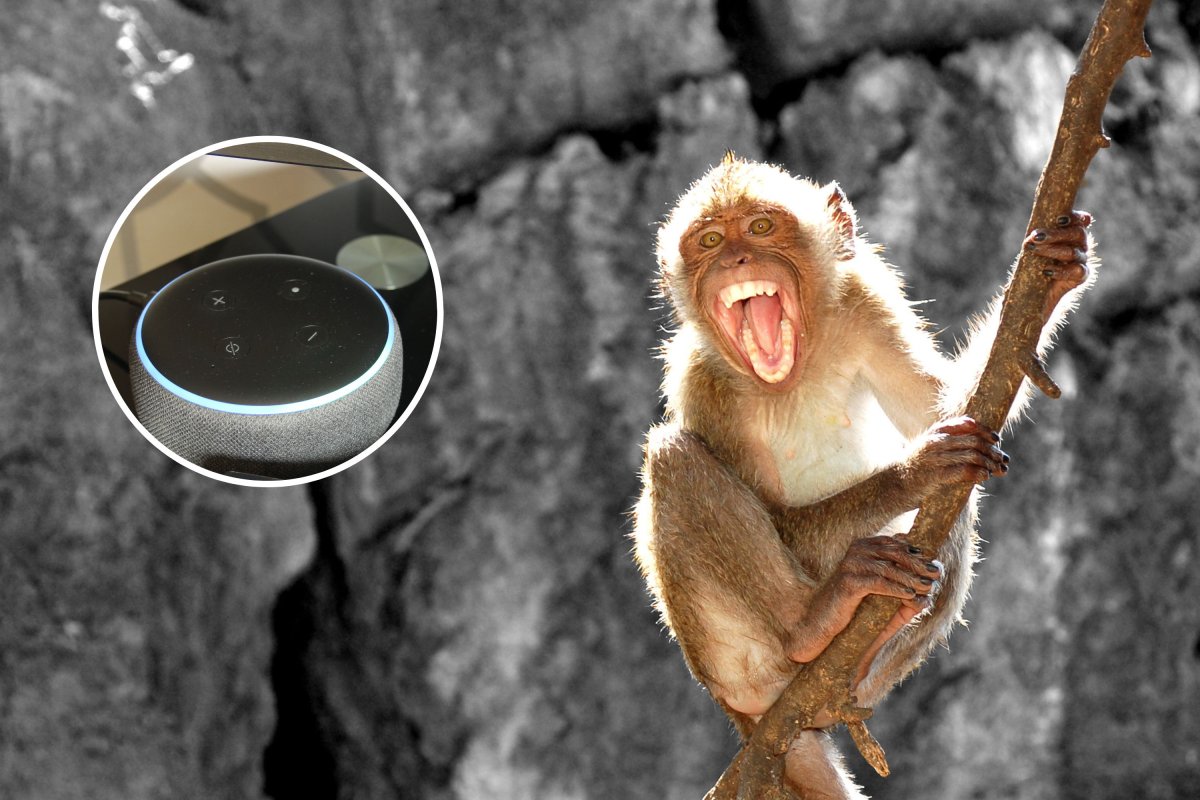A teenager used Amazon's artificial intelligence (AI) tool Alexa to save the life of a toddler who was being attacked by monkeys.
The toddler was attacked in the town of Basti in India's Uttar Pradesh after monkeys broke into the family home while 13-year-old Nikita was playing with her 15-month-old niece.
The monkeys then started tearing apart the kitchen of the home, throwing around food and utensils and terrifying the two girls, local news India Today reported on Saturday. According to one local report, the young child called out in fright after seeing the primates.
Thinking on her feet, Nikita then asked the home's Amazon Alexa to play the sounds of dogs barking. Upon hearing the barking noises from the device, the monkeys swiftly left the home, with local authorities praising the teenager for her quick thinking and instincts.

While the species of monkey involved in the attack wasn't specified, the monkeys may have been macaques or langurs, both of which are commonly found throughout India.
Monkeys may attack for several reasons, including territorialism: particularly males may become aggressive when they perceive a threat to their territory or offspring. Alternatively, monkeys may misinterpret human gestures or actions as threatening, leading to defensive or aggressive responses, and intentional provocation by humans, such as teasing, throwing objects at monkeys, or attempting to capture or handle them, can elicit aggressive reactions from the animals.
One of the major reasons that monkeys attack is food, however.
"Regardless of species or location, a major factor in monkey bites and attacks is 'over-habituation'," Tracie McKinney, a senior lecturer in biological anthropology at the University of South Wales, wrote in an article in The Conversation in January.
McKinney added: "When animals lose their fear of humans and become a nuisance, they are over-habituated. In nearly all cases of over-habituation, the main factor is human food. What people eat is irresistible to wildlife. It is nutrient-dense, easy to digest and is available in rubbish bins, unattended backpacks, or even directly from people."
These monkeys were likely breaking into the family home in search of an easy meal, having learned that human houses were a surefire way to find a snack. If they had encountered the young child, they could have caused her serious harm.
In recent years, there have been numerous reports of monkeys attacking people and even killing young children in India.
Late last year, a 10-year-old boy died due to severe injuries from a monkey attack, and in 2022, a 4-month-old died after monkeys threw him from a roof.
Do you have a tip on a science story that Newsweek should be covering? Do you have a question about monkeys? Let us know via science@newsweek.com.
Uncommon Knowledge
Newsweek is committed to challenging conventional wisdom and finding connections in the search for common ground.
Newsweek is committed to challenging conventional wisdom and finding connections in the search for common ground.
About the writer
Jess Thomson is a Newsweek Science Reporter based in London UK. Her focus is reporting on science, technology and healthcare. ... Read more
To read how Newsweek uses AI as a newsroom tool, Click here.








